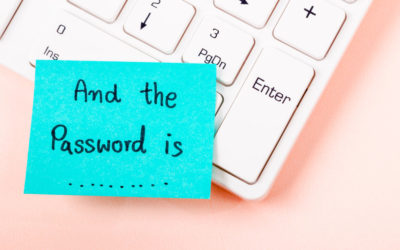Estate Planning – Questions Answered

Welcome Jennifer Cowan to my blog. Enjoy her review of basic estate planning questions, and learn more about her work at the bottom of the article.
Estate Planning Part I: Why Do You Need It?
When people find out that I am an Estate Planning attorney I sometimes hear why they don’t need one: “I’m going to spend it all before I die”; “I don’t have an estate”; “My kids will sort it out when I’m gone.” I’m here to tell you that you DO need an estate plan. And if you already have an estate plan in place, congratulations! Just skip to “Part II: What Happens Next?”
First, all of us have an estate, even if we don’t live in a gated mansion. We probably have some amount of assets, and we are likely to have items of sentimental value. Many people opt to keep that special item in the family or pass it to a close friend for whom it also has meaning. In the past I’ve done volunteer work for low income elderly clients. These clients are concerned about a beloved pet and making sure that the pet is provided for at their death. They also may have a treasured family item to pass to a relative. Both of these concerns can be addressed in a simple will.
An estate plan does more than just lay out who your assets go to. It provides for you if you become incapacitated. While no one likes to think about that happening, it is increasingly likely as life spans increase that a significant percentage of us will spend some time [legally] incapacitated: mentally unable to make medical or financial decisions for ourselves. An example of this is the loss of the ability to reason and manage financial affairs due to Alzheimer’s or vascular dementia. Any criteria for determining incapacity will be spelled out in your documents, most typically a letter from your doctor.
Before our initial meeting I ask new clients to fill out, or at least review, my Estate Planning Questionnaire. We discuss your assets and chosen beneficiaries, plus who you would want to make decisions for you if you are not able to make decisions for yourself. We discuss various distribution scenarios, such as whether you want your beneficiaries to receive the assets immediately at your death, or if you want distributions spread out over time (as is common with minor children). We discuss potential tax issues. Due to space constraints I’ll cover just two of the estate planning documents in use in California: the revocable trust and an Advance Health Care Directive.
In California revocable trusts are used primarily to avoid high probate fees and for incapacity planning. They can also be used to distribute assets over time. With a will, whatever assets you own at your death are distributed shortly thereafter. (It is often said that a will “speaks” at death.) A trust is much more flexible. For example, at death certain trust assets may be set aside in a subtrust to pay for college expenses over time, or support a spouse until his or her death and then allow the assets to go to children of a prior marriage. Trusts allow for incapacity planning, as the named successor trustee can take over if need be, even temporarily.
An Advance Health Care Directive is another important document. It allows you to state what medical treatments and life-sustaining measures you would like to receive and who would make your health care decisions if you are unable to make them yourself. In the absence of an AHCD well-meaning family members could argue over treatment options. There are other documents most California planners recommend, such as the Durable Power of Attorney and Will or Pour-over Will. These are explained on my website.
Can you now answer the questions/statements I opened with?
The person who plans to “spend it all” before his death: obviously we have no idea when we’ll die or what our assets will be at our death. [This is just common sense, not a legal answer.]
The person with “no estate” may have personal items of value or a pet that must be provided for. Also, estate or no, we need documents in place to provide for our own possible incapacity.
The client whose children will “sort out” options at the client’s death or temporary incapacity: do you really think that is a good idea? Unfortunately a death tends to exacerbate family issues, rather than exert a calming effect. Do your loved ones a favor: work this out in advance.
Remember, when, or if, something happens to us, most of us have specific ideas about how we would want affairs managed-who would make medical decisions for us, what our wishes are in that regard; who our assets pass to; who would be responsible for making those distributions, and so on. Additionally, if our wishes aren’t clearly documented, those left behind and responsible for implementing those decisions can be left wondering what our wishes would be-an added stress at an already difficult time. We also do our best thinking when we are not in a crisis or emergency situation; there is time and energy to consider options, what works best for you and your loved ones.
Part II: What Happens Next?
Congratulations! You’ve answered the questions, made your decisions and signed your estate planning documents. What happens next?
Have a discussion with your agent for healthcare about what your end-of-life decisions are and what matters are important to you regarding your care. The ACHD names an agent to act for you and make health care decisions on your behalf; it (and you) can’t possibly anticipate all medical decisions to be made and options available. Therefore, it is important to have a discussion with your agents about your values and wishes. A tool many clients have found helpful for this discussion is the “Go Wish” deck of cards available at www.gowish.org. The cards have simple statements such as “To have close friends near” and “To be treated the way I want.” You sort this various wishes/cards into piles depending on how important they are to you.
If you have a trust it is important to make sure that your assets are properly funded into the trust. Your attorney will help you with this or give you instructions for titling assets in the name of the trust. Whether you have a will or a trust, keep your document up to date. If you are no longer in contact with the person you wish to manage your affairs, name someone else. Let your attorney know if you get divorced or married, or there are other significant changes in your life.
Your agents should know where your original estate planning documents are kept and how to access them. After your death your successor trustee or executor contacts your estate planning attorney OR any other estate planning attorney to administer your estate. This involves collecting and valuing assets, paying bills (including filing your last tax return), collecting any money you were owed at your death and eventually distributing remaining assets to your beneficiaries.
Thanks for your time and attention. This information in no way constitutes legal advice or creates an attorney-client relationship with the reader. For more information contact Jennifer Cowan: 415.485.4437; cowanlaw@comcast.net; www.cowanlawoffices.com.
Recent Articles
Business Succession Planning in the Internet Age
I originally looked closely at this topic with my colleague Doug Bend, of the Bend Law Group. We presented on this topic in San Francisco earlier this year and a version of this article was originally published in Forbes. Many business owners build their...
A List Of Passwords is NOT a Digital Asset Estate Plan
Today’s popular advice is to leave a list of online accounts and passwords, or leave access to a password manager, as a way of providing your loved ones with access to your data and online accounts when you die. Many people suggest that this list of accounts and...
Transferring Digital Assets: A Small Estate Affidavit?
One of the more clever suggestions I hear related to transferring digital assets post death is the use of a small estate affidavit. I do think there is potential limited use for a small estate affidavit related to digital assets. I believe that FinTech companies...




0 Comments